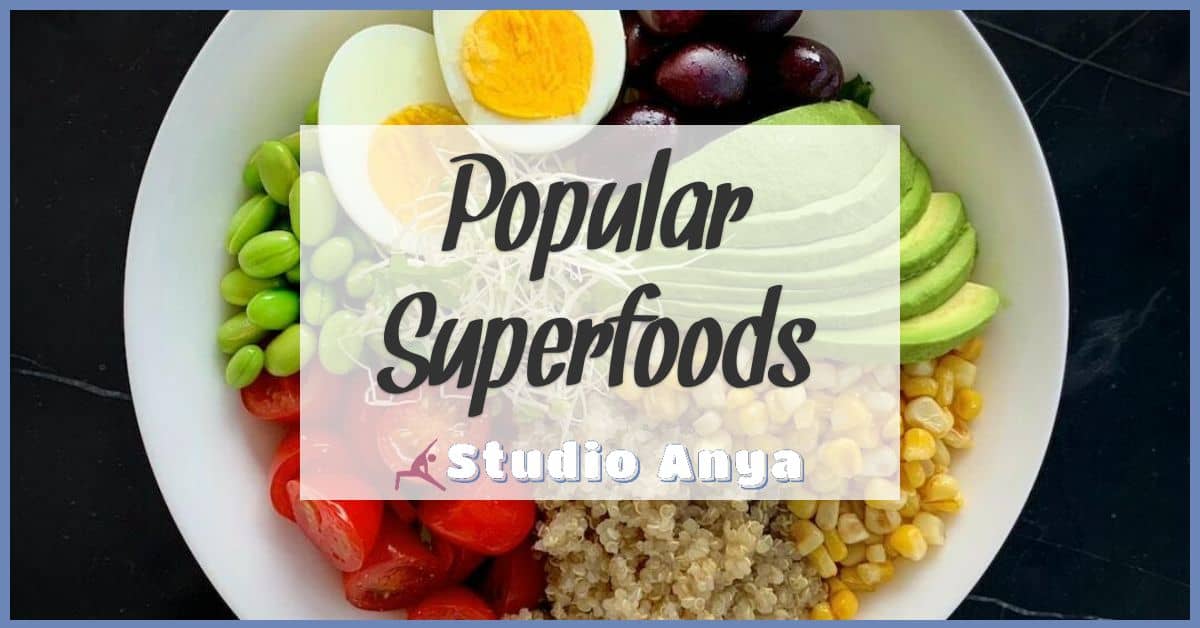I’ve always been fascinated by how certain diets can do so much more than just help us stay fit—they can transform our overall well-being. The Mediterranean diet is one of those rare gems that’s as delicious as it is healthy. Inspired by the traditional eating habits of countries like Greece, Italy, and Spain, it’s not just a diet; it’s a lifestyle rooted in balance and simplicity.
What makes this way of eating so special? It’s all about fresh, wholesome ingredients like fruits, vegetables, whole grains, and olive oil, paired with a relaxed, mindful approach to meals. Whether you’re looking to improve your heart health, boost your energy, or just enjoy flavorful food, the Mediterranean diet offers something for everyone. Let’s dive in and explore why it’s earned its reputation as one of the healthiest diets in the world.
What Is The Mediterranean Diet?
The Mediterranean diet is more than just a way of eating; it reflects a holistic approach to health that I deeply value as a yoga and meditation teacher. Rooted in the traditional cuisines of countries bordering the Mediterranean Sea, this diet highlights fresh, plant-based meals and an intentional connection to nourishment.
Central to this diet are whole, unprocessed foods. Staples include fresh vegetables like tomatoes, spinach, and zucchini; fruits such as oranges and figs; and whole grains like farro and barley. Extra virgin olive oil is a key ingredient, offering heart-healthy fats. Protein sources include legumes, nuts, seeds, and moderate amounts of fish rich in omega-3s, such as salmon and sardines.
While it emphasizes plant-based eating, animal products are not excluded. Dairy, particularly in the form of yogurt or cheese, and lean proteins like poultry are consumed in moderation. Red meat and sweets are occasional indulgences rather than daily habits.
The Mediterranean diet also promotes mindful eating. Meals are enjoyed slowly, often shared with family or community, fostering a sense of connection. It aligns with the mindful practices I teach, as it encourages slowing down to appreciate each bite fully.
Key Components Of The Mediterranean Diet
The Mediterranean diet stands out for its emphasis on fresh, wholesome foods and heart-healthy ingredients. As someone who values balance through yoga and mindful living, I find this diet aligns beautifully with promoting physical, mental, and emotional well-being.
Core Foods And Ingredients
Fruits, vegetables, and whole grains form the base of this diet. Brightly colored vegetables like tomatoes, peppers, and leafy greens, alongside fruits such as oranges, grapes, and figs, fill meals with nutrients. Whole grains like quinoa, barley, and bulgur provide sustained energy, crucial for active lifestyles.
Legumes, nuts, and seeds add plant-based proteins and essential minerals. Lentils, chickpeas, almonds, and sunflower seeds are a perfect addition to salads and snacks. Seafood, a key protein source, particularly fatty fish like salmon and sardines, supplies omega-3 fatty acids for heart and brain health. Lean poultry and eggs are also included in moderate amounts.
Healthy Fats And Oils
Extra virgin olive oil is central to the Mediterranean diet. It’s my favorite choice for cooking, drizzling over salad, or dipping with fresh bread. Unlike saturated or processed fats, olive oil is rich in monounsaturated fats and antioxidants, supporting cardiovascular health and reducing inflammation.
Other healthy fats come from avocados, olives, and nuts like walnuts. These fats provide sustained energy and help the body absorb vital nutrients. In my experience, incorporating these types of fats complements an active lifestyle, supporting both energy levels and recovery.
Benefits Of Red Wine (In Moderation)
Red wine, enjoyed in moderation, is often associated with this diet. Drinking a small glass with meals can enhance cardiovascular health thanks to compounds like resveratrol and antioxidants in the wine. However, balance is key; the focus lies on mindful consumption rather than indulgence.
For those who prefer non-alcoholic options, grape juice or red grapes offer similar antioxidant properties. Mindful living, in my view, includes thinking about how and when we enjoy such beverages, integrating them into a healthy, holistic routine rather than overindulgence.
Health Benefits Of The Mediterranean Diet
The Mediterranean diet offers numerous health benefits that align beautifully with the goals of yoga and meditation: balance, vitality, and mindfulness. Its focus on whole, nutrient-rich foods supports both physical and mental well-being, making it an ideal choice for a holistic lifestyle.
Effects On Heart Health
Heart health improves significantly with the Mediterranean diet, thanks to its emphasis on heart-friendly ingredients. Extra virgin olive oil, rich in monounsaturated fats and antioxidants, helps reduce bad cholesterol (LDL) levels. Including omega-3-rich fatty fish like salmon or sardines promotes anti-inflammatory effects, lowering the risk of heart disease. Nuts, seeds, and whole grains contribute fiber and essential nutrients that further benefit cardiovascular health. Pairing these foods with gentle yoga practices can amplify these heart-healthy effects.
Impact On Brain And Cognitive Function
The Mediterranean diet nurtures brain health by providing nutrients that enhance cognitive function. Foods like walnuts, leafy greens, and fatty fish supply omega-3s and antioxidants, proven to improve memory and concentration. Regular consumption of these foods can also help reduce the risk of neurodegenerative diseases like Alzheimer’s. This connection resonates deeply with mindfulness practices, as a nourished brain supports focus and mental clarity, essential for meditation and breathwork.
Role In Weight Management
Weight management becomes natural with the Mediterranean diet due to its focus on whole, unprocessed foods and satiating healthy fats. Fiber from legumes, vegetables, and whole grains creates a feeling of fullness, while proteins from lean poultry, fish, and plant-based sources provide sustainable energy. This balance of nutrients helps maintain a healthy weight without feelings of deprivation. Combined with yoga’s low-impact movement and mindful eating approaches, weight balance becomes sustainable and enjoyable.
How To Start The Mediterranean Diet
Beginning the Mediterranean diet feels natural once you embrace its principles of balance and nourishment. As someone committed to mindfulness through yoga and meditation, I see this diet as an extension of a mindful lifestyle, emphasizing whole foods and joyful eating.
Tips For Beginners
- Stock Your Kitchen With Essentials
Keep staples like extra virgin olive oil, whole grains (quinoa, farro, bulgur), fresh vegetables (tomatoes, zucchini, eggplant), and legumes (chickpeas, lentils) readily available. Including nuts and seeds like almonds and walnuts ensures you always have nutrient-packed options.
- Gradually Increase Plant-Based Foods
Incorporate more vegetables, fruits, and plant-based proteins into your meals. For instance, add a simple chickpea and tomato salad or roasted vegetables with olive oil to your daily meals.
- Focus on Freshness
Prioritize fresh, unprocessed ingredients. Instead of canned or pre-packaged items, aim for fresh herbs (basil, parsley), seasonal produce, and locally-sourced seafood where possible.
- Enjoy Dining as a Ritual
Transform meals into moments of mindfulness. Sit down, slow your pace, and savor each bite. Sharing meals with family or friends also aligns with Mediterranean traditions of enjoying food in community.
- Cook Simply
Prepare meals with minimal ingredients. A simple dish of roasted vegetables drizzled with olive oil or broiled fish with lemon holds all the flavor and nourishment you need.
Sample Meal Plan
Here’s an example day to inspire your Mediterranean journey:
- Breakfast: Greek yogurt with fresh strawberries, a drizzle of honey, and a sprinkle of chia seeds.
- Lunch: Quinoa tabbouleh with fresh parsley, cherry tomatoes, cucumber, and olive oil. Pair with hummus and whole-grain pita bread.
- Snack: A small handful of almonds and a piece of fresh fruit, like an apple or orange.
- Dinner: Grilled salmon with a side of roasted Mediterranean vegetables (zucchini, bell peppers, red onion), drizzled with olive oil and lemon juice.
- Optional Beverage: A glass of water infused with fresh mint or lemon. For those who enjoy wine, a moderate serving of red wine with dinner is an option.
This approach blends nourishment with mindfulness, creating a sustainable, flavorful routine that complements yoga and meditation practices perfectly.
Potential Drawbacks And Considerations
While the Mediterranean diet is celebrated for its health benefits, it’s not without considerations. Individual dietary needs and preferences may influence the diet’s suitability, especially for those with specific health conditions or lifestyles.
High Cost of Ingredients
Fresh, high-quality ingredients like extra virgin olive oil, fresh seafood, and seasonal produce can strain budgets. For clients I work with, I suggest seeking local markets or seasonal options to manage costs while maintaining quality.
Potential for Overconsumption
Even healthy fats, like those from olive oil, nuts, and seeds, are calorie-dense. Without mindful portion control, excess caloric intake might affect weight management. I advise measuring servings and practicing mindful eating techniques to stay balanced.
Cultural Preferences and Accessibility
Staple foods in the Mediterranean diet may not align with local cuisine preferences or dietary restrictions. For example, some individuals in my practice avoid seafood or dairy. Adapting meals to incorporate culturally preferred or accessible plant-based oils, legumes, and grains can help.
Alcohol Consumption
Moderation in alcohol, especially red wine, supports the diet’s benefits, but some individuals avoid alcohol entirely for personal or health reasons. In such cases, I recommend alternatives like red grape juice for polyphenols.
Not Truly Vegetarian or Vegan
While plant-based eating is central, the inclusion of seafood, poultry, and occasional dairy may not align with vegetarian or vegan practices. In these cases, I guide transitioning to fortified plant-based proteins, emphasizing balance and nutritional adequacy.
Time for Meal Preparation
Cooking fresh meals from scratch can be time-intensive. Many of my clients juggling work, yoga, and daily commitments voice this concern. I suggest prepping ingredients in advance to craft meals quickly without compromising on mindfulness or balance.
Conclusion
The Mediterranean diet is so much more than just a way of eating—it’s a celebration of balance, mindfulness, and nourishment. Its focus on fresh, wholesome ingredients and heart-healthy practices makes it a lifestyle that aligns beautifully with a mindful approach to health and well-being.
While it may take some effort to adapt to its principles, the rewards are truly worth it. From vibrant flavors to incredible health benefits, this diet offers a sustainable path to feeling your best. Whether you’re exploring it for its delicious meals or its holistic benefits, the Mediterranean diet is a journey worth embracing.



















